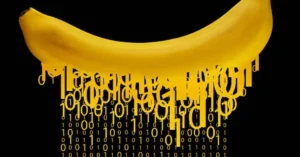The meaning, origin, and purpose of the phrase “dozmixsiw154” may have you scratching your head in many online contexts. Despite its seemingly meaningless string of letters, phrases like this frequently have deeper meanings or have specialized tech uses. What does “dozmixsiw154” mean? We’ll break it out here, along with its possible applications and how to approach nebulous digital jargon deliberately.
What is Dozmixsiw154?
Dozmixsiw154 appears to be an arbitrarily produced identification at first sight. A product code, a placeholder, or a term associated with proprietary systems might be what it is. Code names for undeclared projects, encryption IDs, alpha-testing environments, and internal references are all possible uses for this.
This string of letters and numbers seems to indicate an organized, maybe artificially manufactured word with hidden significance. Iteration, versioning, or a particular instance of a larger sequence is frequently implied by the addition of a numerical suffix, such as “154”.
Possible Origins and Interpretations
Although there’s no publicly confirmed source for “dozmixsiw154,” we can explore several plausible origins or categories it might fall into:
1. Development Codename
Companies often use unique tags like this for product testing, internal rollouts, or confidential initiatives.
2. Machine Learning Model ID
AI and ML systems generate identifiers for model versions, training batches, or feature sets.
3. Database or Server Token
In cloud infrastructure, terms like these could serve as security tokens or dynamic pathing names.
4. Hashed or Encoded Reference
Hashing systems (like SHA-256) might generate segments that resemble this format.
5. User-Created Keyword
It may also be a username, gamer tag, or social alias within a specific community or platform.
Technical Use Cases and Hypothetical Scenarios
To bring this concept into sharper focus, here are some theoretical scenarios where a term like dozmixsiw154 might appear:
Scenario 1: Internal Software Testing
In alpha stages, developers might label software environments or features with identifiers like “dozmixsiw154” to distinguish them without disclosing functional names.
Scenario 2: API Key Structure
An API platform may use similar strings to track user credentials, data call patterns, or access logs.
Scenario 3: Cryptography
In encryption systems, composite identifiers like this could play a role in key exchanges, especially when embedded in larger hash tables.
Scenario 4: Content Management System Tagging
Content or media assets within enterprise CMS platforms may be tagged with machine-readable IDs for automation and indexing.

Potential Applications in Digital Systems
Understanding the functional versatility of obscure strings like “dozmixsiw154” requires a look at practical applications:
1. Cloud Infrastructure Labels
Cloud platforms (e.g., AWS, Azure, GCP) often assign unique IDs to nodes, containers, or scripts.
2. Software Build Numbers
Versioning schemes sometimes include randomized identifiers to mark minor forks or builds.
3. Bot Activity Identification
In cybersecurity and network monitoring, strings like this may identify unusual or bot-related behavior.
4. Gaming/Forum Aliases
In online multiplayer games or private communities, these aliases serve as login names, secret handles, or developer flags.
Table: Use Case Scenarios for Dozmixsiw154
| Domain | Use Case | Description |
|---|---|---|
| Software Development | Feature Codename | Placeholder for new features before public naming |
| Cybersecurity | Bot Detection | Label for unusual access string in user agent logs |
| Cloud Hosting | Asset ID | Assigned to a dynamic container or instance |
| Machine Learning | Model Version | Represents a specific algorithm configuration or data batch |
| Gaming | User Handle | Username for anonymous player or tester |
Security and Ethical Considerations
While “dozmixsiw154” seems harmless, it’s crucial to evaluate strings like this through a security lens:
1. Avoid Mistaking for Malware
Obscure strings are often flagged in antivirus scans. Context is key before labeling something as malicious.
2. Data Privacy
Identifiers may inadvertently expose metadata or internal system logic. Always anonymize when sharing externally.
3. Audit Trail Review
For developers or IT teams, track where and how such strings are logged to avoid vulnerabilities.
4. Educating Teams
Encourage internal documentation when using code names or alphanumeric tags to prevent misinterpretation later.
Dozmixsiw154 in Popular or Niche Communities
Terms like dozmixsiw154 might gain traction in specialized forums, digital art communities, code repositories, or gaming servers. Here, unique identifiers can:
- Spark speculative discussion
- Represent digital artifacts or NFTs
- Function as ARG (Alternate Reality Game) breadcrumbs
- Serve as internal lore or inside jokes
This cultural layer adds intrigue and makes it harder to pin down a definitive source or meaning.
Conclusion
The seemingly esoteric dozmixsiw154 represents the rich diversity of modern digital systems‘ naming standards, code tagging, and metadata. These identifiers, whether they are artifacts from the backend, aliases used by gamers, or parts of a bigger jigsaw, serve as a constant reminder of the complex and ever-changing world behind the surface of the programs and interfaces we use every day.
Deciphering names isn’t the only thing you need to know about obscure or specialty strings; you also need to know the processes and ingenuity that drive them.
FAQs
Q1: What does “dozmixsiw154” mean?
A: It could represent a development codename, encrypted ID, or machine-generated label. Without specific context, it remains speculative.
Q2: Is “dozmixsiw154” safe or malicious?
A: Alone, the term is neutral. However, in security systems, it’s essential to analyze its context to ensure it’s not linked to suspicious activity.
Q3: Can I use a term like “dozmixsiw154” for a project?
A: Yes, many developers use abstract strings as placeholders, tags, or test identifiers.
Q4: Why do some systems use such random-looking names?
A: Random or semi-random identifiers help avoid naming conflicts, enhance security, or preserve anonymity.
Q5: Where might I encounter “dozmixsiw154” or similar terms?
A: Anywhere from cloud services, API tokens, game usernames, to internal app environments or encrypted datasets.
For more information, click here.









